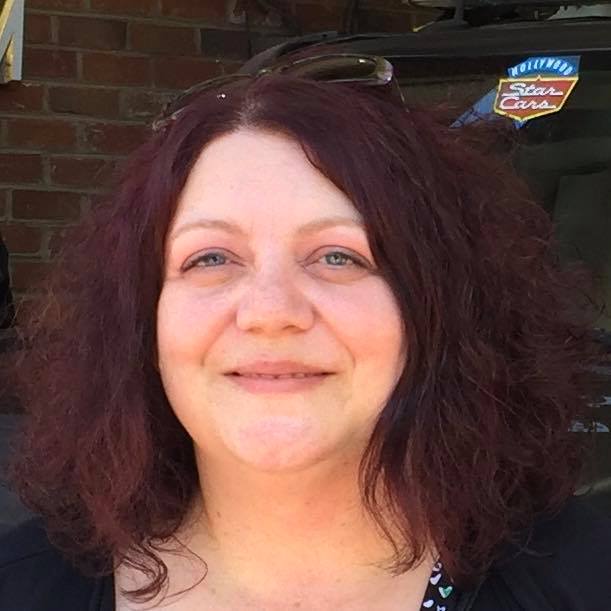After a child is physically or sexually abused a non-offending caregiver often has many questions, but only after a wave of other emotions floods their mind. When confronted with trauma, the human mind is not capable of fully assessing a situation long-term. Questions often arise after child protective services and the police have initiated reports, the prosecutor’s office has been notified, and a forensic interview is conducted at a place like the Children’s Advocacy Center of Southeastern Indiana (CACSEI). Kids and families then begin thinking about their futures and what, if anything, the abuse may have caused or done to them.
Parents and older children sometimes ask questions that range from the physical sense like, “Will I be able to have kids?” And, “Is my body hurt or ruined?” To the psychological, like, “Am I the same person I used to be?” Or, “Could this make my child gay?” To the metaphysical like, “Is my daughter still a virgin?”
“Getting reassurance from a doctor and hearing answers to questions about trauma and health,” says Jodie Short, “can help families and kids heal. This assurance helps kids as they build resilience and overcome the trauma.”

It’s going really well, and we’re excited that we are now about to start the second phase of the pilot by offering telemedicine.
Short is the Program Manager for the Mayerson Center for Safe and Healthy Children at Cincinnati Children’s Hospital Medical Center. Her work includes the administrative operations for various programs such as budgeting and supply management. She is also responsible for figuring out innovative ways to partner with other groups and agencies in the region to solve challenging problems and adverse childhood experiences. Short also happens to be a Hoosier commuting from her home in Franklin County each day and driving the long country miles that define rural life in southeast Indiana.
For any family or caregiver living in southeast Indiana that needs to consult with specialists and medical teams in far-flung places like Cincinnati, Louisville, or Indianapolis, many questions rightly creep up, such as how will they be able to find their way there let alone manage the time and additional expenses.
In early 2019, CACSEI embarked on a pilot program designed to bring physicians and nurses with Cincinnati Children’s closer to the kids and families who come through their doors. Both Short and Dr. Robert Shapiro, the Director of the Mayerson Center for Safe and Healthy Children, immediately saw the benefits for the region.
“For our pilot, we tried scheduling appointments one day a month and made the decision to use our Cincinnati Children’s location in Batesville to reach families in Southeastern Indiana,” says Short. The Batesville medical office has been staffed one day a month with a pediatrician specializing in child abuse and trauma. Kids who came to CACSEI for a forensic interview and displayed no life-threatening injuries or need for immediate evidence collection could then go to Batesville relatively soon for a specialized abuse-related check-up. Kids with serious injuries, evidence, or those who have immediately suffered sexual assault instead go to an emergency room—often at Cincinnati Children’s but sometimes Indianapolis or Louisville as well.
With an undercurrent of pride, Short says, “Being from an Appalachian family in a rural Indiana town, it’s hard to go into the city. It’s intimidating and it takes a lot of time and effort. It’s far away and requires navigating interstates and knowing where you are going. We are most comfortable getting services closer to where we live.” One assumed benefit of the Batesville office is it would reduce the anxiety some adults have at driving into a larger metro area.
I think that’s going to be a game-changer. It won’t matter about location anymore.
All of the costs of care at the Batesville office have been covered by Cincinnati Children’s or other grant sources. Of course, nothing is ever completely free. Many caregivers still often bear the costs of gas, food, travel and time off from work. Despite all the efforts this pilot program has still not been without difficulties and challenges. The number of patients seen in Batesville has been much lower than anticipated.
“However,” says Short, “The pandemic, as crazy as it is, has given us the opportunity to think outside the box. We can now think about doing telemedicine which we’ve not done around child abuse before.” With a brief pause, she says beaming: “We are hopeful it’s going to work.”
“We’re all very excited about this,” says Short. “Not only can we do forensic interviews remotely now because of the pandemic, but these alternative methods of delivering care have the scrutiny and blessing of top experts in the child abuse arena. We’ve been able to conduct medical visits, outside of acute situations, and do medical case reviews. It’s going really well, and we’re excited that we are now about to start the second phase of the pilot by offering telemedicine,” says Short. She gets keyed up as she talks about it. “And this is the cool part: They’ll be able to connect with a doctor at their CAC visit instead of potentially needing to schedule another day or time.”
Medical exams at a child advocacy center are not new. Many CACs across the country and some in Indiana offer exams at the CAC. Some are free of charge, and some require insurance or payment for medical exams. CACSEI, however, covers a huge territory with two locations in Dillsboro and Madison. A third Greensburg office is opening in a few weeks. Now, kids in rural Indiana can come to their closest center, get a forensic interview while a caregiver speaks to a Victim Advocate, and the child can also speak with a physician or nurse in a private room via phone or video conference—all in the same visit at no cost to them.
“The team will decide if they need a medical consultation, and they will have a telemedicine visit immediately with a doctor or Forensic Nurse,” says Short. “I think that’s going to be a game-changer. It won’t matter about location anymore.”
Young kids are likely to visit with a physician and their parent or guardian in the room. Older kids and teens may prefer to speak privately with a physician. The exam is mostly intake and history. “The child isn’t in a gown. And short of a bruise on their arm, for instance, they aren’t being asked by the doctor to show anything. It’s like the first five minutes at the doctor’s office,” says Short.
“This type of brief medical exam is helping to guide the care and make determinations if they need to be seen in person or not and also if they need any testing. If they do need to be seen for a physical exam or perhaps tests to screen for sexually transmitted infections, we will schedule a follow-up.” However, most cases are often just about reassuring youth and families to say, “You’re okay,” and those extra steps are often not necessary.
Prior to the pandemic, Cincinnati Children’s was already exploring ways to increase their one-day-a-month time in Batesville. “We realized not being able to consult immediately is part of the reason we did not have more volume,” says Short.
The virtual requirements thrust upon everyone by the Coronavirus have nudged everyone closer together while simultaneously keeping everyone apart. “We were always part of the team but not part of the staff meetings. And now we’re doing that via Zoom, too,” says Short. This means physicians are hearing about cases along with law enforcement and prosecutors and increasing referrals.
While Cincinnati Children’s has shouldered much of the costs of this program and will continue to do so for the foreseeable future, Short isn’t without praise for other team members. “Stephanie, Cindi, and Jesse at the Children’s Advocacy Center have just delved into this and made it a priority. To see what they’ve advocated for is impressive. They’re the ones that call us regularly and tell us about their cases. This is not what they do, they’re not medical professionals, and they’ve learned a lot and taken on that challenge because they want to see better services for their kids. It makes me excited and looking forward to our future goals and continued partnership.”
Learn more about CACSEI’s partnership with Mayerson Center for Safe and Healthy Children at Cincinnati Children’s Hospital Medical Center in this video and article.




